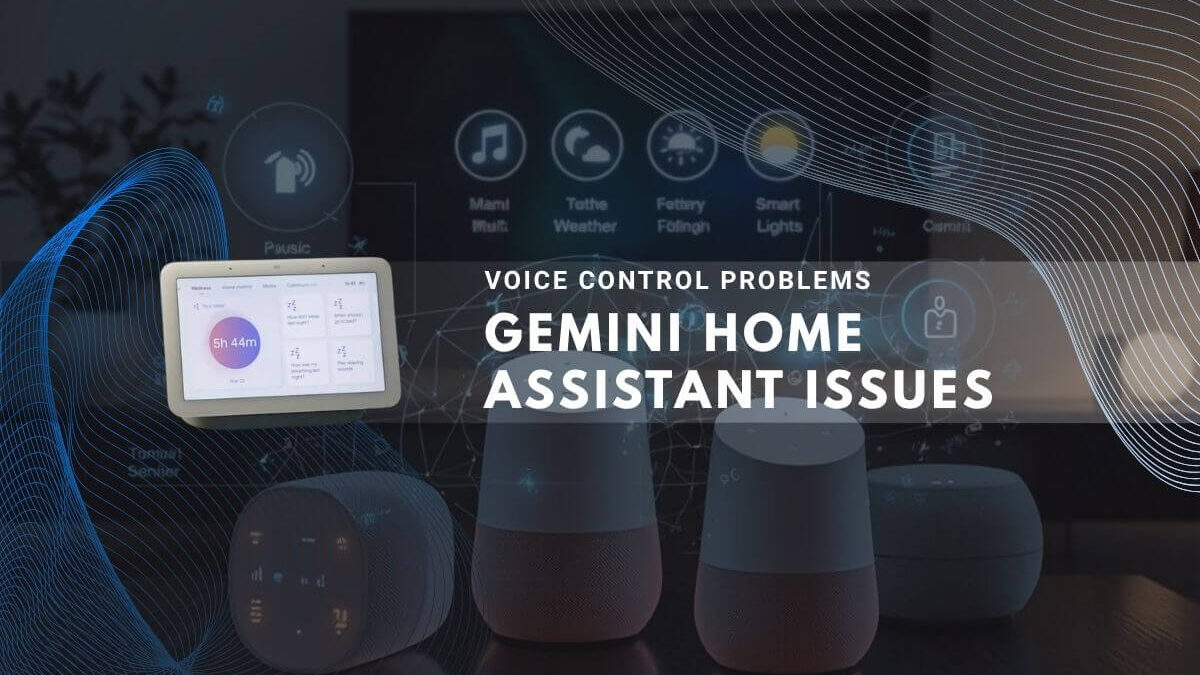Google launched Gemini for Home on October 28, 2025, targeting smart speakers and displays. Two weeks into deployment, official documentation reveals users struggle with fundamental failures in command understanding and device control, explaining the deliberately slow rollout pace.[1][2][3][4][5]
Current Failures Documented by Google’s Official Support
Google’s Nest Community FAQ identifies two critical issues affecting early users.[2][3][5]
Command Understanding Problems
Users report that Gemini misinterprets basic voice queries. Official examples include setting alarms for 5am instead of requested 5pm times and failing to parse commands entirely. These failures directly contradict a voice assistant’s core function.[3][5][2]
Device Control Failures
Smart home command execution frequently fails or produces incomplete results. Users attempting to control lights, locks, and thermostats experience inconsistent or non-existent responses. Since Gemini is becoming the default assistant across all Google Home devices, these failures affect millions of users.[5][1][2][3]
Related Articles:
- How Google Is Strengthening Its Smart Home with Gemini for Home
- Gemini for TV Now Available on Google TV Streamer Starting Today
Rollout Status and Adoption Metrics
The deployment remains intentionally limited. An Android Authority survey reveals adoption remains minimal.[4][1][3][5]
| Metric | Details | Source |
|---|---|---|
| Rollout Start | October 28, 2025 | [1][4][2][3][5] |
| Geographic Scope | United States only | [1][4][3][5] |
| Early Adopter Rate | 11 percent of eligible users | [1] |
| Users Without Access | 89 percent | [1] |
| Rollout Type | Home-by-home, not account-level | [1][4][3][5] |
| International Launch | Q1 2026 | [1][4][3][5] |
| Hardware Launch | Spring 2026 | [2] |
This gradual approach reflects Google’s need for extensive testing before wider deployment.[1][3][4][5]
Device Compatibility and Premium Feature Limitations
Gemini supports Google Home and Nest devices manufactured after 2016, with base features free on all compatible models. Mashable’s comprehensive device list confirms exact compatibility windows.[6][5]
Base Gemini Access (All Compatible Devices Free)
- Google Home (2016), Home Mini (2017), Home Max (2017)[6][5]
- Nest Mini (2019), Nest Audio (2019)[5][6]
- Nest Hub (2018, 2021), Nest Hub Max (2019)[6][5]
Premium Features Require Newer Hardware
Gemini Live and advanced automation require Google Home Premium subscription at $10 monthly and compatible device. Only these models qualify:[1][5][6]
- Nest Mini (2019 and later)[6]
- Nest Audio (2020 and later)[6]
- Nest Hub Max (2019 and later)[6]
- Nest Hub (2021 and later)[6]
Critical limitation: Older devices like Google Home (2016) cannot access premium features even with paid subscription. The Verge confirmed this device-level restriction in their analysis.[2][5][6]
The Architectural Challenge: Large Language Models vs. Command Control
Original Google Assistant used command-and-control logic where specific input produced identical output reliably. Large language models prioritize conversational flexibility, sacrificing predictability for mechanical tasks.[7][8][3][2][5]
Anish Kattukaran, Google Home product lead, told The Verge: “LLMs are great at being creative, but not so good at doing the same thing over and over again with the same predictable output.” This quote directly addresses the core technical challenge. Amazon’s Alexa Plus experiences identical failures, indicating an industry-wide architectural tension.[3][2][5]
Command Chaining Shows Inconsistent Results
Multi-step commands show mixed performance across user bases. Some users successfully chain commands; others encounter failures when mixing media control with device commands. One documented Reddit case: “If I’m playing white noise and say ‘Stop and turn on the bedroom lamps,’ it responds with ‘Power controls are not supported.'”[9][2][3][5]
However, other Reddit users report success combining multiple commands without issues. This inconsistency suggests feature instability rather than complete non-functionality. The feature represents regression from Google Assistant’s more reliable multi-command support. The Verge noted this capability loss in their analysis.[9][2][3][5]
How to Request Early Access
Users can increase chances of receiving Gemini through official Early Access signup process.[4][3][5][1]
Early Access begins with opening Google Home app and navigating to profile settings. Users must verify their home address is set to United States location. The rollout prioritizes US users before international expansion in Q1 2026.[3][4][5][1]
User Feedback and Timeline
Users can report issues by saying “Ok Google, send feedback” with specific command details. Google has not specified resolution timelines for identified failures. The company acknowledged issues through official FAQ but provided no fix estimates.[2][5][3]
Rollout continues through Q4 2025 in US; Q1 2026 begins international expansion; spring 2026 introduces new hardware. Google TV Streamer integration began November 10, 2025. Google indicated the slow rollout is intentional pending stability improvements.[10][11][4][5][1][2][3]
